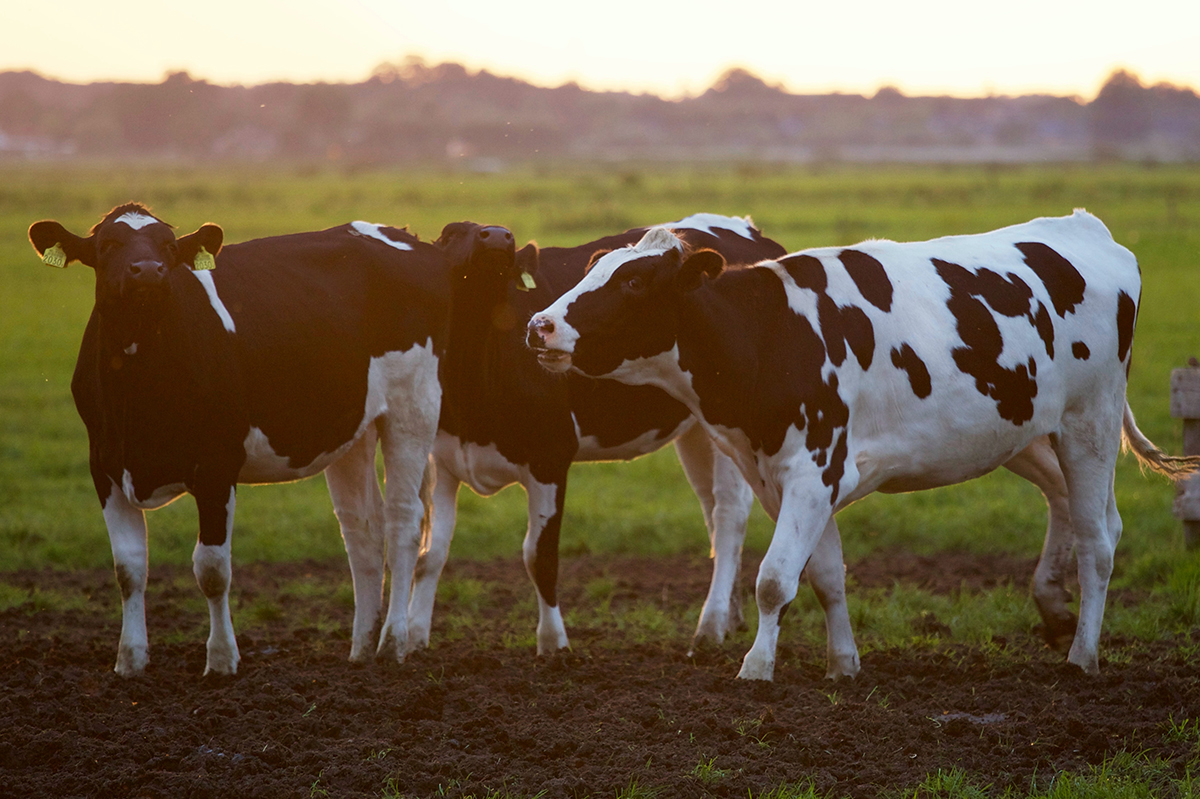NEW
Managing costs, innovating to adapt to the market and environmental impacts, challenges facing dairy cow operations
12 February 2021Managing costs, innovating to adapt to the market and environmental impacts, challenges facing dairy cow operations
- NEIKER and the Galician Food Quality Agency (Agacal) gather dairy industry experts to debate the sector’s future within the framework of the Dairy4Future project
- This European project aims to improve the sustainability of dairy operations, foster interaction between livestock professionals and share innovative ideas in the Atlantic regions of Europe
In its most recent workshop organised by NEIKER and the Galician Food Quality Agency (Agacal), the European project Dairy4Future (www.dairy4future.eu) discussed the economic and environmental aspects of the dairy cow industry, especially emphasising animal nutrition within the framework of operational sustainability. The project identified cost management, innovating to adapt to the market and environmental impacts as the top challenges facing dairy cow operations.
The workshop explained the current situation of milk production. On the one hand, the workshop confirmed the existence of a growing global population as a driver of international markets to meet increased food demand. This increased global demand contrasts with the ageing population of Europe forecast for the 2040-2100 period, which may limit per capita income for a large swathe of consumers in the future. At the country level, decreasing milk and dairy consumption habits in the home has been confirmed, despite the fact that the primary sector has been able to respond to society’s needs under the current pandemic circumstances.
Managing costs
The talk on dairy product market outlooks highlighted the importance of managing operational costs as a way to offset the price variability that can lead to lower producer profits. In terms of the value chain, the need to build and strengthen stable relationships between production and transformation was underscored.
Innovating to adapt to customers
The Dairy4Future workshop demonstrated that the dairy processing and farming industries are innovating to add value to milk by responding to market demands. In addition to driving innovation at varying scales, they are interested in the sustainability of production systems.
This gives the sector the opportunity to advertise the services it provides to society in addition to producing food and derivatives (leather, co-products for other sectors), such as revitalising rural areas, preserving cultural heritage, the countryside and biodiversity, etc.
The environmental impact of the dairy industry
Some of these services also impact operations’ yield and reduce the carbon footprint (greater energy efficiency, use of local sources of protein and fibre, use of animal excrement as fertiliser, increased carbon in the soil, smaller carbon footprint, etc.). A number of players, including processors, are aware of the importance of dairy sector sustainability on the market and have begun gathering tools to assess its environmental impact.
The carbon footprint is one of the climate impacts calculated with the LCA (life-cycle assessment) methodology. Life-cycle assessments at the farm scale assess the impact of processes up until when the milk leaves the farm, including concentrates, fodder, bedding materials, and purchasing and raising the animals.
The emissions behind the carbon footprint of dairy farming arise from enteric fermentation, concentrate purchases and dropping management. The different talks offered ways to mitigate and reduce the carbon footprint.
Mitigation via fodder crop management was discussed, considering a number of options available to farmers (corn silage, legumes, etc.). The importance of other related parameters, such as replacement rate, animal fertility, health and well-being statistics and calving intervals was also discussed. All of these things are connected to operations’ carbon footprint and yield. The results of different handling methods and replacing ingredients with the biggest environmental burden, such as soya, for locally-produced ingredients such as rapeseed cake were presented.
About the Dairy-4-Future project
Funded by the Interreg Atlantic Area Programme, the Dairy4Future project aims to increase the competitiveness, sustainability and resilience of dairy farms in the Atlantic area. Its objective is to identify, evaluate and share innovative practices with European dairy technicians and breeders through transnational seminars, farm open days and technical tools including publications, videos, training sessions, etc.
Dairy4Future focusses on four key issues: analysing the strengths and weaknesses of the dairy sector in Atlantic Area, fostering dairy sector economic resilience, improving resource use efficiency and determining sustainable dairy systems for the future.
The project puts innovative farmers at the centre of practice-based research work, and combines various methods (SWOT analysis, research activities, economic simulations, etc.) to adapt and develop scientific knowledge, which will lead to technical solutions and recommendations to be shared across the network.
The Dairy-4-Future project involves five countries (Ireland, United Kingdom, France, Spain and Portugal) and covers 12 Atlantic regions, from Scotland to Azores, that together represent 20% of the 28 EU member countries’ milk production and 100,000 farmers working in a wide array of milk production systems.
With 11 technical partners and 21 associated partners, Dairy4Future relies on a strong scientific and technical network, rounded out with 10 experimental farms and 100 pilot farms.
More information: www.dairy4future.eu



